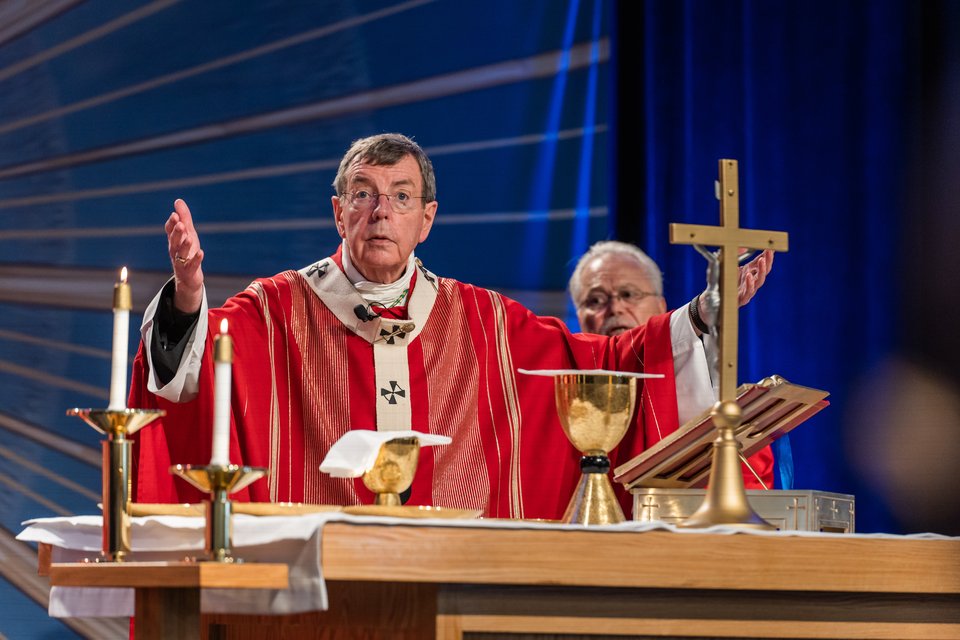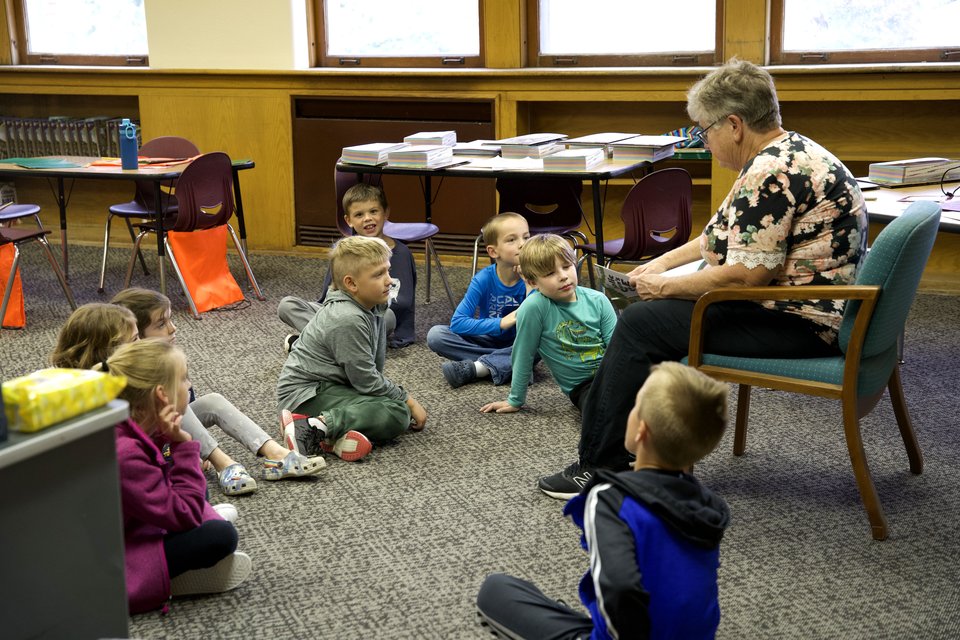Tasked with 'making disciples of all nations,' engagement directors see parishes' uniqueness as a strength in drawing people back to Church
Editor's note: This is the second in a six-part monthly series focusing on ministry and mission within the Archdiocese of Detroit's new parish governance model, called Families of Parishes. Learn more at www.familiesofparishes.org.
DETROIT — The early Christian Church could have kept to itself and shared the Gospel simply among its own ranks.
But then where would the faith be today?
Driven by the Holy Spirit, the earliest disciples went out and told the rest of the world about Jesus, inviting others to join them as they celebrated and proclaimed the Gospel.
This principle of engagement with both the churched and unchurched is what makes the Catholic faith a missionary faith — and that mission is critical to the success of the Archdiocese of Detroit’s new parish model, called Families of Parishes.
Engagement is one of five new “mission direct” areas of focus under the Families of Parishes model, along with discipleship formation, evangelical charity, family ministry and worship. Each Family will have its own director for each mission area.
“(Engagement) means attracting people to the Church, engaging those who are already coming, but also reaching out to the unchurched and unaffiliated,” Anita Houghton, associate director for the Archdiocese of Detroit’s Office of Engagement and Family Ministry, told Detroit Catholic. “It's about helping them to encounter Christ and helping them to get hooked in and stay connected to the community.”
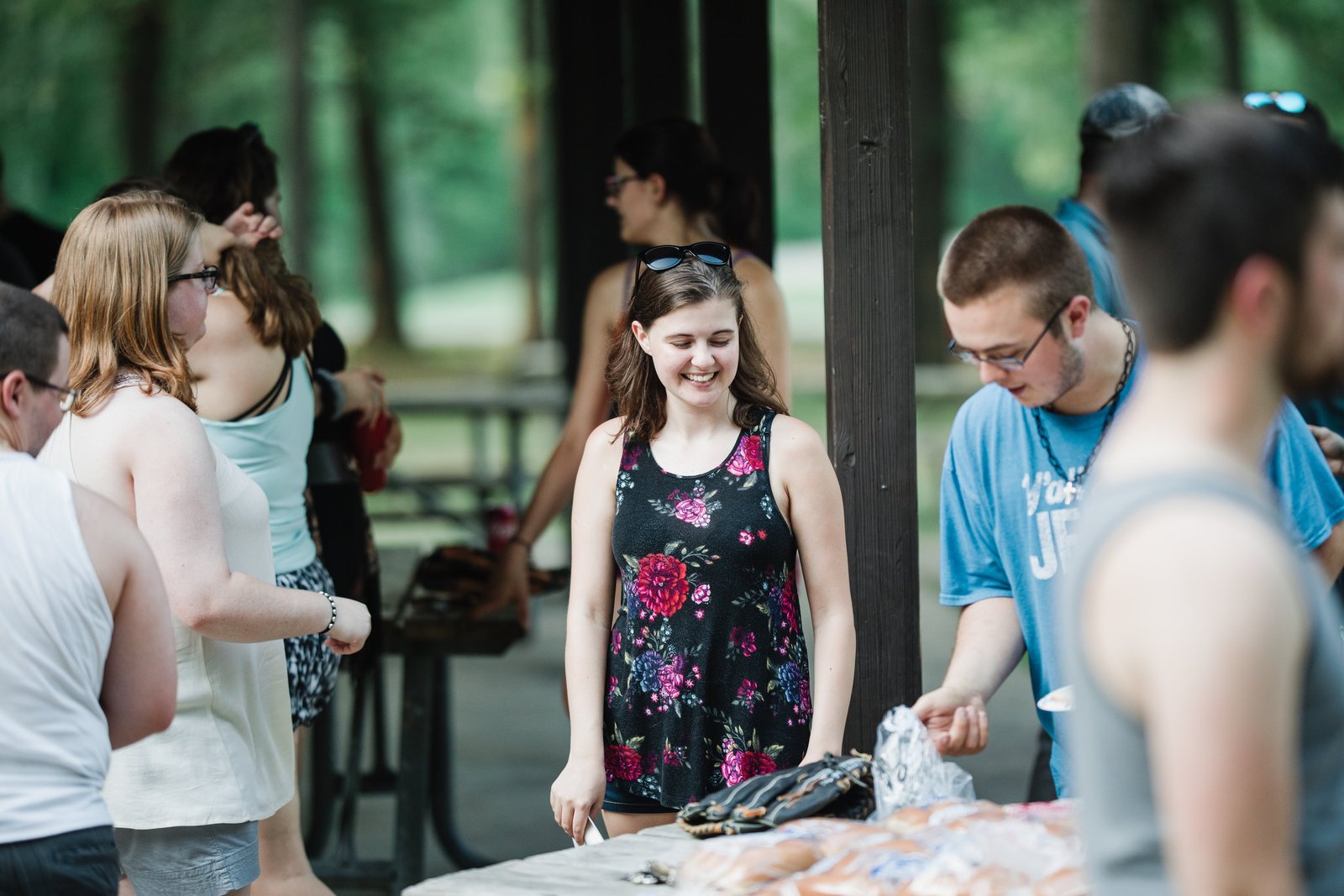
A number of parish ministries fall under the area of engagement, including evangelization, RCIA, hospitality, ministry placement, ecumenism and communications, Houghton said. While every parish shares the goal of making Christ more widely known, engagement strategies might look a little different family by family, she said.
“Every family of parishes has to look across their parishes and say, ‘OK, what is the situation? What is the best way to do an evangelization ministry across all of our parishes? What is the best way to attract people within our geographic community?’” Houghton said.
What works for each parish is dependent on many factors, including socio-economic, demographic and cultural factors, as well as the needs of the community, Houghton added.
While many already-established families have turned to traditional methods of outreach, including social media and unified parish bulletins, to engage with individuals already part of the church community, engaging the “unchurched” looks different for each family.
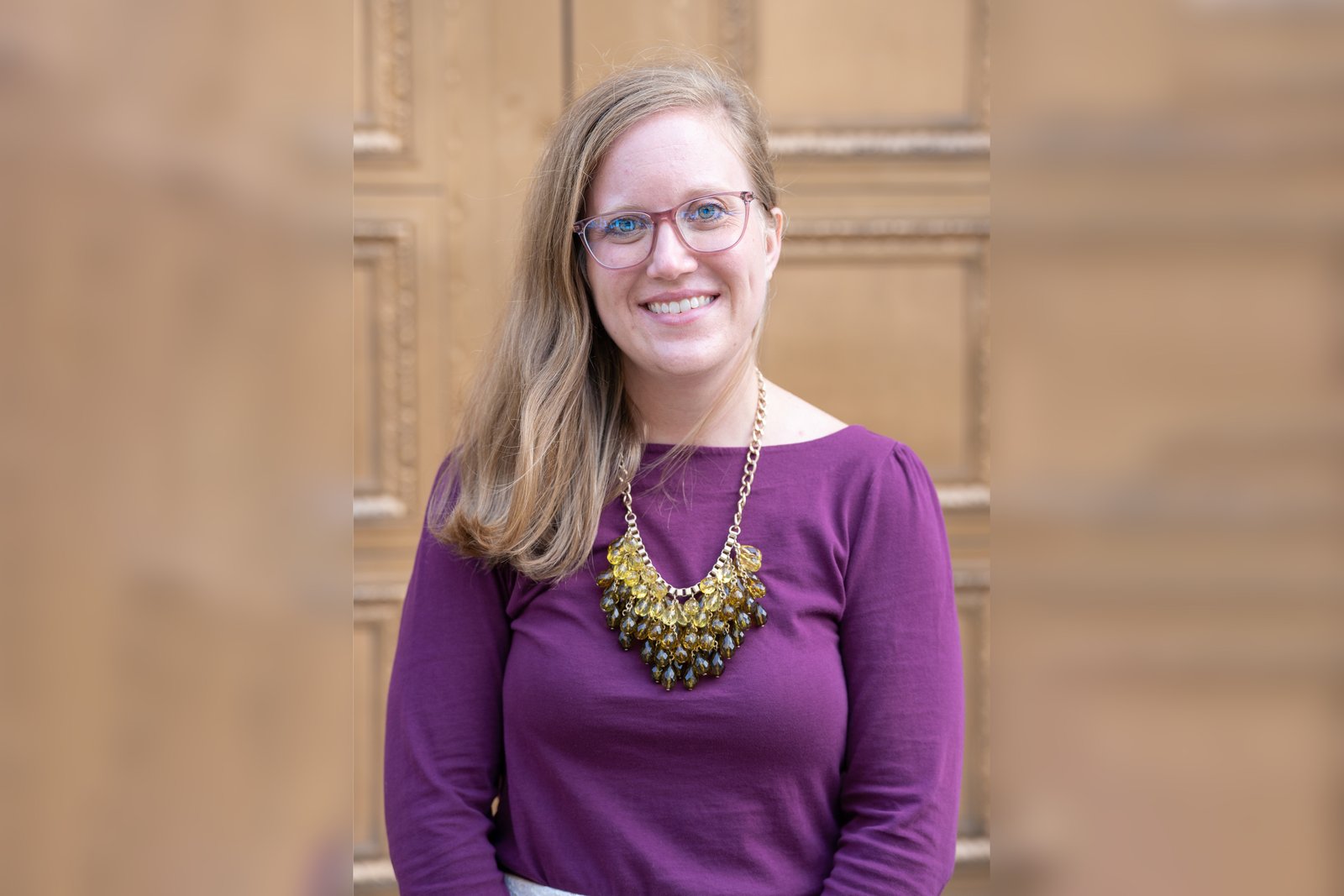
In Detroit, Beth Allison serves as co-engagement director for Renaissance Vicariate Family 1, which includes the Cathedral of the Most Blessed Sacrament, Our Lady of the Rosary, St. Aloysius and St. Mary (Greektown) Parish.
As part of her new role, Allison said she and her colleague, Marian Bart, are trying to use what’s unique to their parish communities — their inner-city location and beautiful, historic church buildings — to reach out to the unchurched, remaining sensitive to the cultural diversity of the communities surrounding the parishes.
“We try in all of our efforts to ensure that radical hospitality and beauty are a part of everything that we do,” Allison said. “We have beautiful architecture in the churches in downtown Detroit, so we’re using that as a way to engage those who aren't already connected with our parishes.”
For example, social media posts that highlight the churches’ unique architecture, opportunities for tours and ensuring the churches’ doors are open to pedestrians go a long way toward establishing a welcoming environment, Allison said.
“I think that we have an opportunity to really focus on those who are seeking the Church. The foot traffic, I think, is a unique aspect that we have” Allison said.
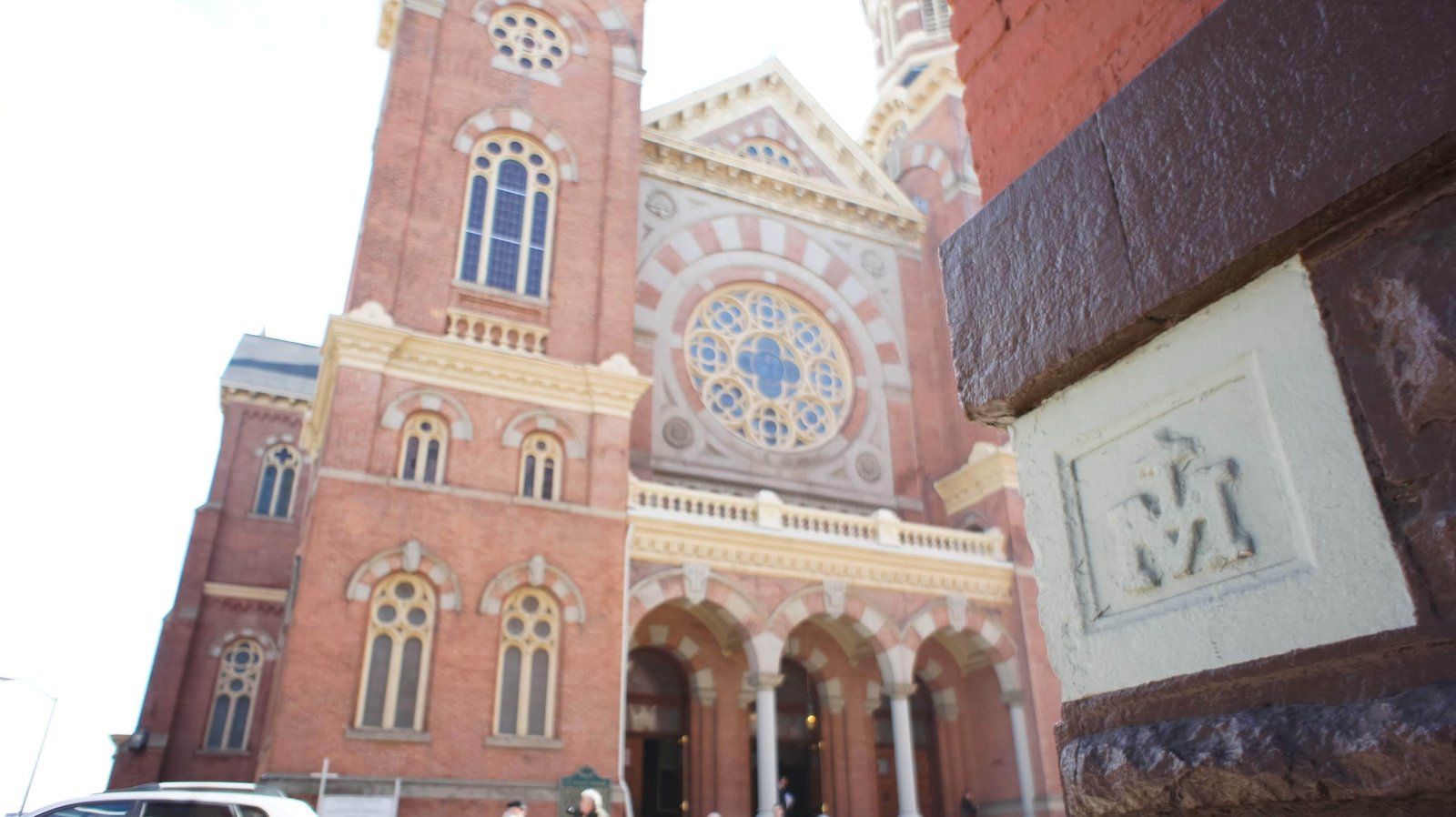
At the parishes of Northwest Wayne Vicariate Family 2, which includes Our Lady of Victory Parish in Northville, St. Colette Parish in Livonia, St. Edith Parish in Livonia and St. Kenneth Parish in Plymouth, Deacon Ric Misiak and his wife, Colleen, work side by side as engagement directors.
Recently, the parishes — which adopted the name “Pope Francis Family” — sent out a flier inviting those in the community who are no longer Catholic to stop by Our Lady of Victory for a no-pressure conversation about why they left.
“It was just an invitation to come and tell the story, no pressure or follow up, nothing handed out. It was just an honest effort to listen,” Deacon Misiak told Detroit Catholic. “We got a ton of people. And we served cookies — you have to have food — to help drop some of that anxiety of walking into something strange.
“People came in, and some were previously Catholics, but some weren’t at all. They talked, we thanked them and gave them cookies for the road. The overall impression as people were leaving is they kept waiting for the hammer to fall” and for the parish to try to “convert” them, he said. “But it was just an open, honest conversation.”
The event prompted some of the attendees to return over the following week to continue the conversation, Deacon Misiak said.
For John Kowalski, engagement director for Blue Water Vicariate Family 1, which includes Holy Family Parish in Memphis, St. Augustine Parish in Richmond, and St. Mary Mystical Rose Parish in Armada, helping parishioners focus on their relationship with the Lord has been the top priority.
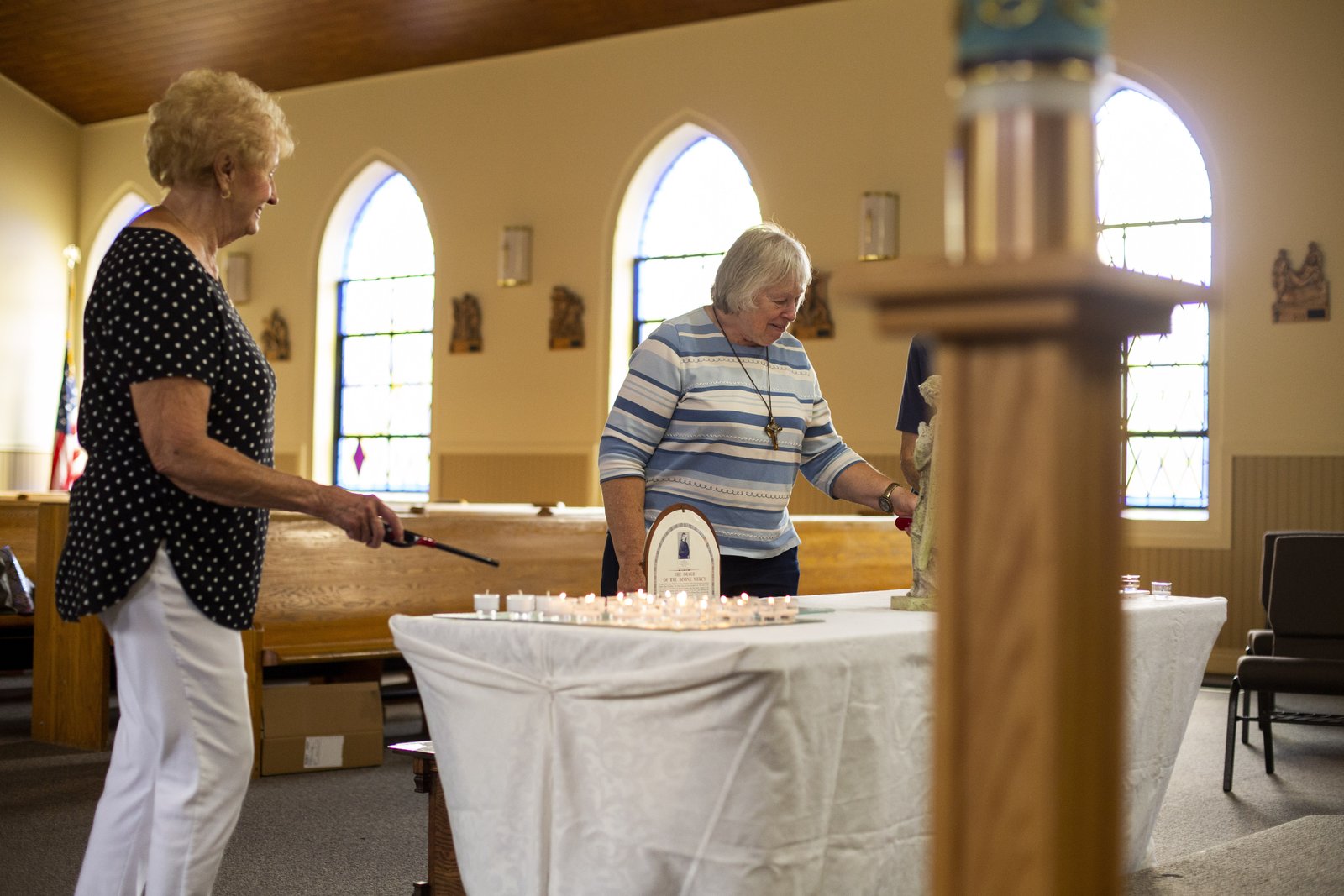
“I work in the auto industry, and engagement to me looks like when you get traction in a car. That’s what we want to do; we want to get our folks in the family of parishes traction with Jesus,” Kowalski said. “A lot of them have been spinning their wheels, not knowing where to go, how to go, when to go, so that’s what the engagement director does: try to help them keep focused and get into a better relationship with the Lord.”
To do this, Kowalski said the family of parishes offered a lecture series on the Holy Spirit accompanied by Eucharistic adoration, a combined RCIA class for the whole family, and a “divine graces prayer box,” he said.
For years, the parishes have offered a “Divine Mercy prayer box” — a place where people can submit prayer intentions. The “Divine Graces” box, by contrast, is for answered prayers.
“People put their answered prayers into the box, and then we count them up and every so often we will announce how many answered prayers there are,” Kowalski said. “That gets people engaged with God.”
At the end of the day, engagement is about helping the Church grow, Houghton said.
“We've gotten too used to having what I call a ‘hermeneutic of decline,’” Houghton said. “We're used to seeing parishes dwindle down to nothing and then having to close them. That's not what we want.
“Actually, the mission is to ‘Go make disciples of all nations,’ and our work is to advance the Gospel of Jesus Christ,” Houghton added. “That means we should be in a growth mode. And that's why engagement is so important: because we're intentional about looking into the community, about attracting the unchurched, bringing back the unaffiliated. This is the area that's going to really do that.”
Families of Parishes
To learn more about the Archdiocese of Detroit's transition to Families of Parishes, check out Detroit Catholic's other coverage, or visit www.familiesofparishes.org.
Copy Permalink
Families of Parishes



